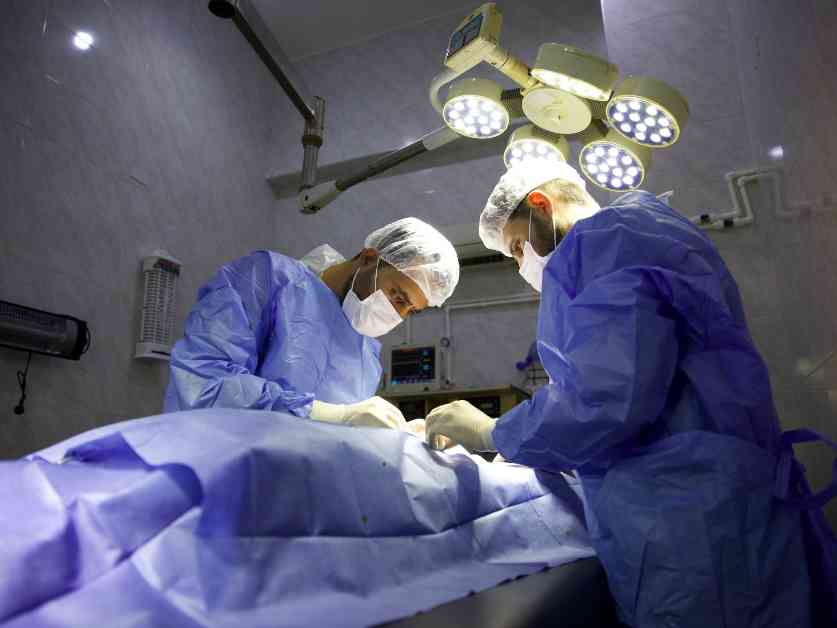Idlib Hospital in Jeopardy
Ayman al-Khayal, a 43-year-old man from Idlib, Syria, relies on free dialysis treatment three times a week at Bab al-Hawa Hospital to survive. However, this vital healthcare facility is facing a dire funding crisis that threatens its closure by the end of September, jeopardizing the lives of thousands of patients like al-Khayal.
The ongoing conflict in Syria has resulted in the fragmentation of the country into various zones of control, with Idlib now under the dominance of the armed group Hay’et Tahrir al-Sham al-Sham. In this tumultuous environment, essential services like healthcare have been severely underfunded, leading to the potential closure of Bab al-Hawa Hospital, which serves as a lifeline for many in the region.
Impact of Funding Shortage
The lack of funding for medical services in Idlib has already led to the closure of several hospitals and health centers over the past year. This has placed immense pressure on the remaining facilities to cater to the growing number of patients in need of care. Bab al-Hawa Hospital, in particular, plays a critical role in providing specialized treatments such as dialysis, microscopic brain surgery, and pediatric surgery to the community.
With over 32,000 monthly patients and 1,200 surgeries conducted each month, the closure of Bab al-Hawa would result in a medical crisis in Idlib, leaving many without access to essential healthcare services. Patients with conditions like kidney failure, who rely on the hospital for lifesaving treatments, face uncertainty and fear for their future if the funding crisis persists.
Struggling to Secure Funding
Despite efforts to secure new donors and sustain operations, Bab al-Hawa Hospital is at risk of shutting down due to the lack of financial support. The Syrian American Medical Society (SAMS), which has been managing the hospital since 2020, has been unable to find sufficient funding to keep the facility running beyond September.
The decline in funding for healthcare in Idlib is attributed to a variety of factors, including the global shift in attention to other humanitarian crises such as those in Gaza and Ukraine. The situation is exacerbated by the economic challenges faced by the population, many of whom are unable to afford private sector healthcare services and rely on free treatment centers like Bab al-Hawa.
Urgent Need for Solutions
As the deadline for funding approaches, patients like Ayman al-Khayal face an uncertain future without access to the essential medical care they need to survive. The closure of Bab al-Hawa Hospital would not only impact the current patients but also have far-reaching consequences for the entire community in Idlib.
Health authorities and organizations are working tirelessly to find solutions to the funding crisis, including seeking support from new donors and exploring alternative funding mechanisms. However, the urgency of the situation requires immediate action to prevent a healthcare catastrophe in Idlib.
The looming threat of closure for Bab al-Hawa Hospital underscores the ongoing challenges faced by healthcare providers in conflict-affected regions like Idlib. The resilience of the medical staff and the determination of patients like Ayman al-Khayal highlight the critical need for sustained funding and support to ensure access to quality healthcare for all in need.



























